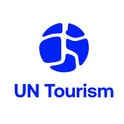UN Tourism and China strengthen ties as leaders chart new course for Global Tourism Economy Forum
UN Tourism and China’s Ministry of Culture and Tourism have further strengthened their strategic partnership as they work together to champion the sector’s role as a driver of international cooperation and development.
In the Chinese capital, UN Tourism Secretary-General Pololikashvili met with China's Minister of Culture and Tourism Sun Yeli to advance critical priorities across the global tourism agenda. These include positioning tourism within international development cooperation to promoting tourism education.
Additionally, the bilateral meeting also focused on advancing the sector’s key role in rural development. The UN Tourism leadership acknowledged that the Chinese government actively participates in the Best Tourism Villages initiative by UN Tourism. In 2024, a further 7 villages were selected as the Best Tourism Villages, taking the total in China to 15. This makes China the country with the most villages given this recognition by UN Tourism.
UN Tourism also recognized China’s decision to extend the visa-free policy for citizens of 38 countries until the end of 2025 and to strongly promote the measures for the convenient payment services for foreign visitors. This policy is anticipated to further promote the development of Chinese inbound tourism.
Advancing the Global Tourism Economy Forum
The official visit coincided with the Global Tourism Economy Forum (GTEF) Council Preparatory Meeting, held to chart a strategic roadmap for the Forum's future. Since its establishment in Macao SAR in 2012, the Global Tourism Economy Forum has been a vital bridge connecting tourism stakeholders from China and around the world, fostering dialogue between policymakers, industry leaders, and entrepreneurs to advance sustainable tourism development.
The Preparatory Meeting, brought together leaders from GTEF's long-standing Partners and Supporting Units including UN Tourism, World Travel & Tourism Council (WTTC), Pacific Asia Travel Association (PATA), European Travel Commission (ETC), World Tourism Alliance (WTA), World Tourism Cities Federation (WTCF), the International Mountain Tourism Alliance (IMTA), the China Chamber of Tourism, and the Macao Government Tourism Office (MGTO). UN Tourism's participation reflects its continued commitment to GTEF, a partnership that began with the Forum's establishment in 2012 and was strengthened in 2023 to expand GTEF’s global reach and influence.
Building on GTEF's decade-long legacy of fostering meaningful dialogue in the global tourism economy, participants laid the groundwork for the GTEF Council, which will serve as the Forum's permanent governing body for strategic leadership and decision-making. The GTEF Council aims to establish a strategic vision to position GTEF as the 'Davos of Tourism,' creating a dynamic platform where public and private stakeholders converge to shape the industry's future. Through this enhanced governance framework, GTEF will strengthen its role as a catalyst for innovation and cross-sector collaboration in global tourism.
Related Links
About UN Tourism
The World Tourism Organization (UN Tourism), a United Nations specialised agency, is the leading international organisation with the decisive and central role in promoting the development of responsible, sustainable and universally accessible tourism. It serves as a global forum for tourism policy issues and a practical source of tourism know-how. Its membership includes 166 countries, 6 territories, 2 permanent observers and over 500 Affiliate Members from the private sector.
Media enquires: [email protected]
UN Tourism Communications Department
+34 91 567 8100
UN Tourism
